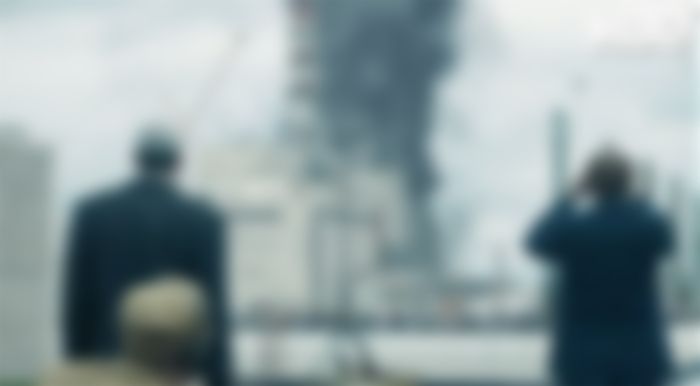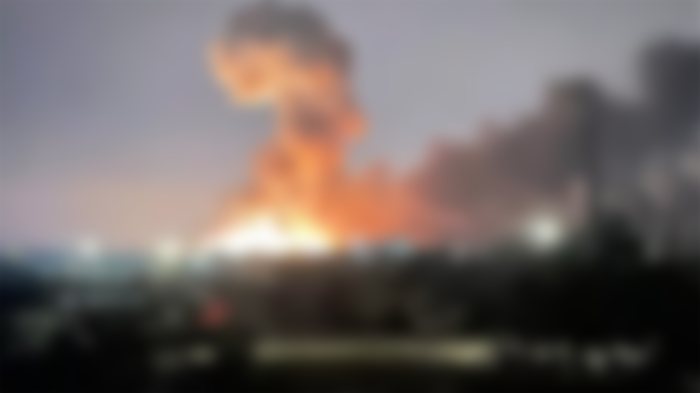Attack on Ukraine and the conquest of Chernobyl: Walking on the edge!
You know the one thing that can go wrong will go wrong, and at this point globally most have the impression that everything is going from bad to worse. The world has been facing a climate crisis for decades that it is not adequately addressing. Negotiations on permissible levels of pollution have thus been diluted over the years and turned into a real farce of the exhaust gas trade, which shows that anything is possible today, with neo-mercantilism being brought to the utter absurdity. There is also the pandemic, which has completely shifted its focus from the climate crisis, while the latest threat to world peace, which has now taken the form of a Russian attack on Ukraine, has now come to the fore. Mostly the new “powder keg” is in the current focus while we have lost others or at least partially lost sight of them.

Russia's attack on Chernobyl is not surprising in the context of the attack on Ukraine. This is a purely strategic decision in order for Russian forces to reach Kiev as quickly and easily as possible. In that operation, the Russians captured the Chernobyl nuclear power plant, which emitted significantly higher doses of radiation during the 1986 accident than those the world faced after the dropping of nuclear bombs on Japan in 1945.

Let's start with a brief analysis of the situation in Chernobyl. There is still nuclear waste here that poses a serious threat. Although the fourth reactor is protected by a concrete shell, it has its own shelf life, which expires next year. The concrete casing is stable at the moment, in the event of escalation of the conflict and direct hits there could be an increase in radiation levels, but now that in Russian hands the situation is likely to remain unresolved, at least in this area.

Dr. Dana Drabova, who heads the Czech state office for nuclear safety, believes that in the event of problems, ie further contamination of this area, the radiation would cover some 30 kilometers within the exclusion zone. However, some scientists believe that the consequences could be much worse. Ukrainians are afraid that Russian forces could use Chernobyl for blackmail, ie threaten to destroy the former power plant and spread radioactive material to a larger area of Ukraine, but also most of Europe. Fortunately, this possibility has not materialized yet.
A threat called 15 active reactors

In fact, in this situation there are much greater threats than Chernobyl, because for example in Ukraine there are 15 active reactors that run on fresh fuel. So what we need to fear more at the moment, if necessary because the situation is largely out of our control, are military activities in places where reactors are currently active. What is even more worrying is that these plants often have outdated operating systems and devices that jeopardize security in themselves, and the circumstances of the war further call this into question. Basically, the impossibility to continue servicing reactors with electricity and water, or the possibility of escalating conflicts in these areas threatens us with serious problems and inevitable environmental disasters. Although there has been a slight increase in radiation in Chernobyl these days, it is again at low levels today; which is why it is believed that this increase was only a consequence of the traffic of heavy goods vehicles in this area, which swirled radioactive dust.
The end of our modern civilization

A 2002 report by The Nation shows that if only one-fifth of Russia's warheads deployed over American cities were detonated, about 80 million people would die within half an hour. It should be borne in mind that this is old data and that the situation today is probably more deadly. Such attacks would destroy all infrastructure such as: electricity network, internet, supply system, transport network, health system. In the coming months, according to the same report transmitted by The Nation, a large number of residents would succumb to disease, famine and similar troubles in the event of an attack on the United States. If NATO were to get involved, which is quite possible at the moment, most of Europe and Canada would be involved in the nuclear conflict. Global climate effects would be even worse. Such mass warfare would lower global temperatures by an average of 18 degrees, and in parts directly affected by nuclear missiles by tens of degrees below the average calculated reduction, which would have catastrophic consequences and lead to declining food production and global hunger. of our modern civilization.

It follows from the above that for the survival of our civilization it is necessary to destroy the threat of nuclear war because there is no winner in it. Robert McNamara, once the US Secretary of Defense, noted that our civilization still exists not because of wise leadership or smart technology, but simply because, as he said, "we were lucky." Constantly counting on a lucky card, McNamara says, is a crazy policy doomed to failure.At this point we live in one of the deepest world crises and are likely that many are a rhetorical question: Shall we move away from the edge or not?





